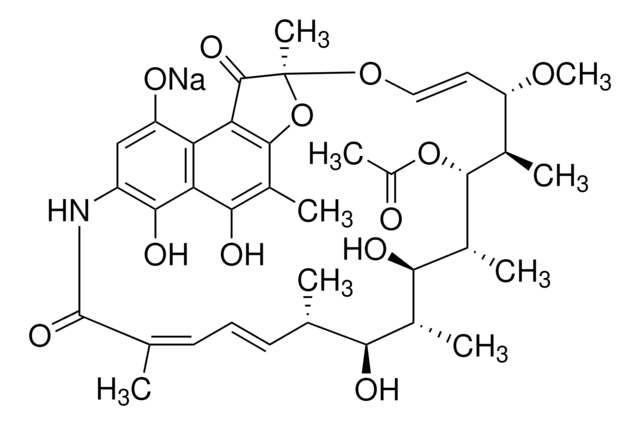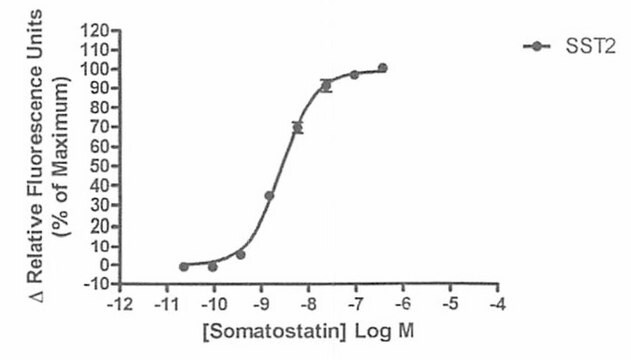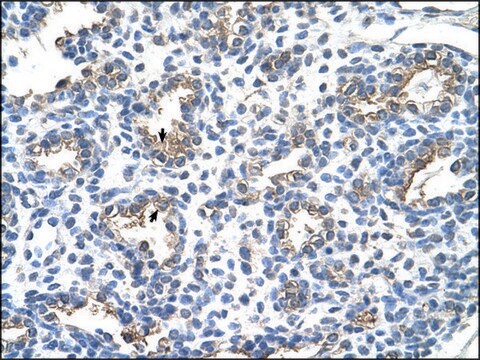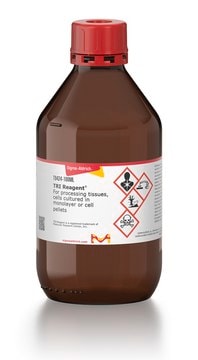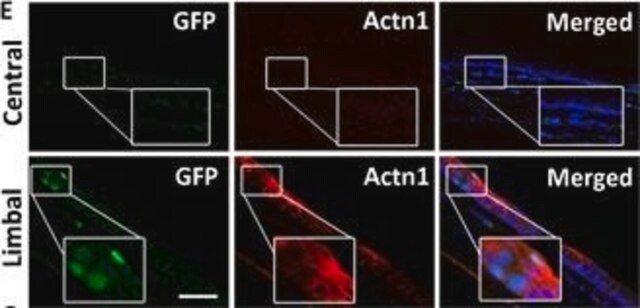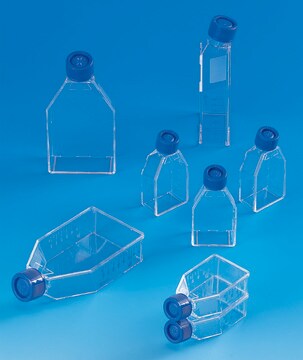HTS139RTA
Ready-to-Assay sst 5 Somatostatin Family Receptor Frozen Cells
Human
Zaloguj sięWyświetlanie cen organizacyjnych i kontraktowych
About This Item
Kod UNSPSC:
41106514
eCl@ss:
32011203
NACRES:
NA.76
Polecane produkty
Nazwa produktu
Ready-to-Assay sst 5 Somatostatin Family Receptor Frozen Cells,
pochodzenie biologiczne
human
Poziom jakości
producent / nazwa handlowa
Ready-to-Assay
metody
calcium flux assay: suitable
numer dostępu NCBI
metoda wykrywania
fluorometric
Opis ogólny
Millipore′s Ready-to-Assay GPCR frozen cells are designed for simple, rapid calcium assays with no requirement for intensive cell culturing. Millipore has optimized the freezing conditions to provide cells with high viability and functionality post-thaw. The user simply thaws the cells and resuspends them in media, dispenses cell suspension into assay plates and, following over night recovery, assays for calcium response.
Somatostatin (sst) is a multifunctional peptide with two biologically active forms, sst-14 and sst-28, which are synthesized in neurons throughout the brain as well as in peripheral tissues such as the pancreas and the gut (Gillies, 1997). SST exerts a diverse array of effects that include inhibition of endocrine secretion, modulation of neurotransmission, and regulation of cell proliferation by stimulating a family of five G-protein-coupled receptors. Somatostatin receptor sst5 is an inhibitory G protein-coupled receptor that exerts a strong cytostatic effect on various cell types. In mice, sst5 mediates somatostatin inhibition of pancreatic insulin secretion and contributes to the regulation of glucose homeostasis and insulin sensitivity (Strowski et al., 2003). In addition, deficiency of sst5 leads to subtype-selective sexually dimorphic changes in the expression of both brain and pancreatic somatostatins (Ramirez et al., 2004). Millipore′s cloned human sst5-expressing cell line is made in the Chem-1 host, which supports high levels of recombinant sst5 expression on the cell surface and contains high levels of the promiscuous G protein Gα15 to couple the receptor to the calcium signaling pathway. Thus, the cell line is an ideal tool for screening for agonists, antagonists and modulators at sst5.
Somatostatin (sst) is a multifunctional peptide with two biologically active forms, sst-14 and sst-28, which are synthesized in neurons throughout the brain as well as in peripheral tissues such as the pancreas and the gut (Gillies, 1997). SST exerts a diverse array of effects that include inhibition of endocrine secretion, modulation of neurotransmission, and regulation of cell proliferation by stimulating a family of five G-protein-coupled receptors. Somatostatin receptor sst5 is an inhibitory G protein-coupled receptor that exerts a strong cytostatic effect on various cell types. In mice, sst5 mediates somatostatin inhibition of pancreatic insulin secretion and contributes to the regulation of glucose homeostasis and insulin sensitivity (Strowski et al., 2003). In addition, deficiency of sst5 leads to subtype-selective sexually dimorphic changes in the expression of both brain and pancreatic somatostatins (Ramirez et al., 2004). Millipore′s cloned human sst5-expressing cell line is made in the Chem-1 host, which supports high levels of recombinant sst5 expression on the cell surface and contains high levels of the promiscuous G protein Gα15 to couple the receptor to the calcium signaling pathway. Thus, the cell line is an ideal tool for screening for agonists, antagonists and modulators at sst5.
Opis linii komórkowej
- GPCR Cell Lines
- Host cells: Chem-1
Zastosowanie
Human sst5 GPCR frozen cells for Calcium Flux FLIPR Assays.
Działania biochem./fizjol.
- GPCR Class: A
- Protein Target: sst5
- Target Sub-Family: Somatostatin
Komponenty
Pack contains 2 vials of mycoplasma-free cells, 1 ml per vial. Fifty (50) mL of Media Component.
Oświadczenie o zrzeczeniu się odpowiedzialności
This product contains genetically modified organisms (GMO).
Within the EU GMOs are regulated by Directives 2001/18/EC and 2009/41/EC of the European Parliament and of the Council and their national implementation in the member States respectively.
Ta strona może zawierać tekst przetłumaczony maszynowo.
Kod klasy składowania
10 - Combustible liquids
Klasa zagrożenia wodnego (WGK)
WGK 1
Temperatura zapłonu (°F)
Not applicable
Temperatura zapłonu (°C)
Not applicable
Certyfikaty analizy (CoA)
Poszukaj Certyfikaty analizy (CoA), wpisując numer partii/serii produktów. Numery serii i partii można znaleźć na etykiecie produktu po słowach „seria” lub „partia”.
Masz już ten produkt?
Dokumenty związane z niedawno zakupionymi produktami zostały zamieszczone w Bibliotece dokumentów.
Nasz zespół naukowców ma doświadczenie we wszystkich obszarach badań, w tym w naukach przyrodniczych, materiałoznawstwie, syntezie chemicznej, chromatografii, analityce i wielu innych dziedzinach.
Skontaktuj się z zespołem ds. pomocy technicznej
